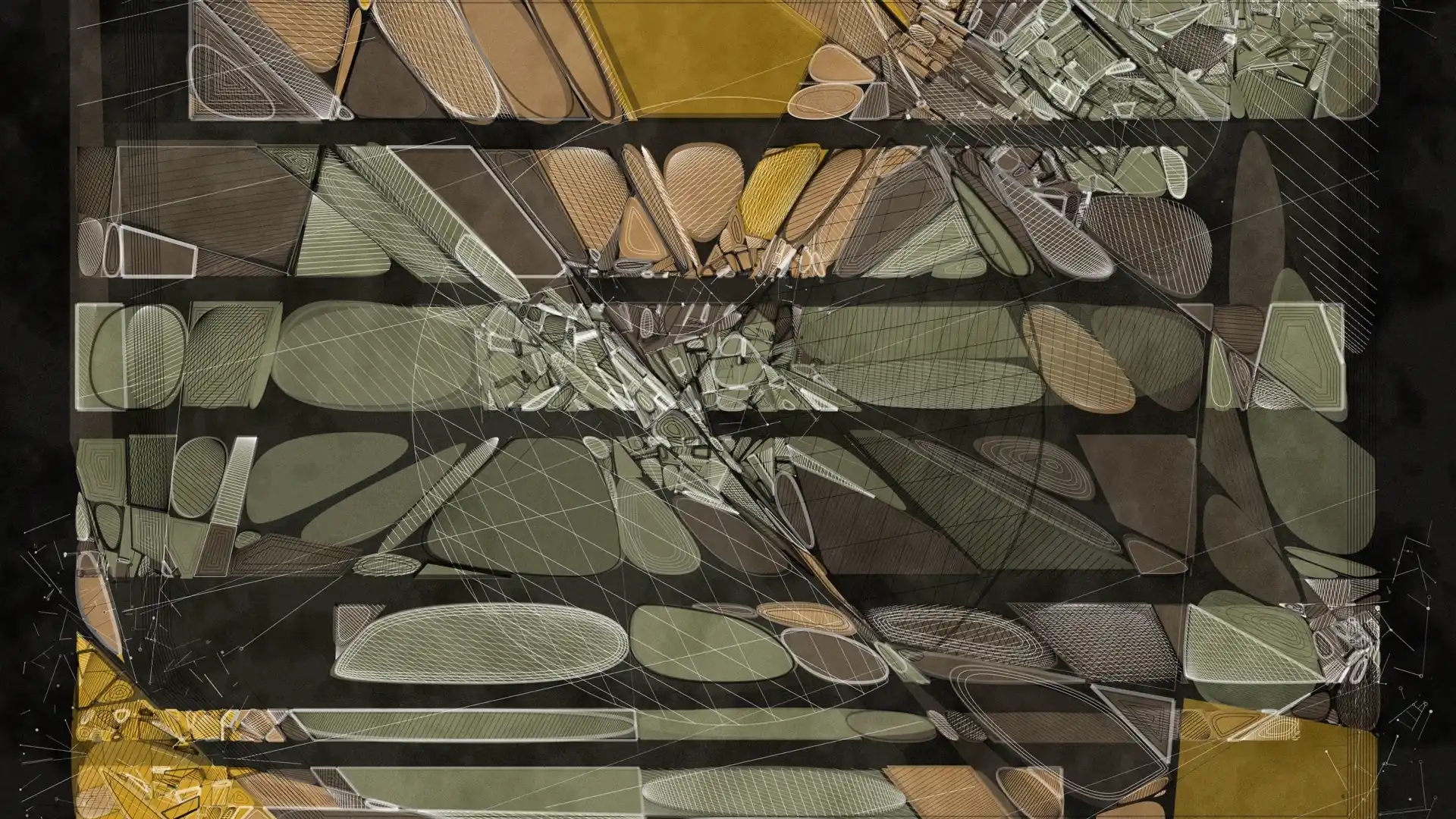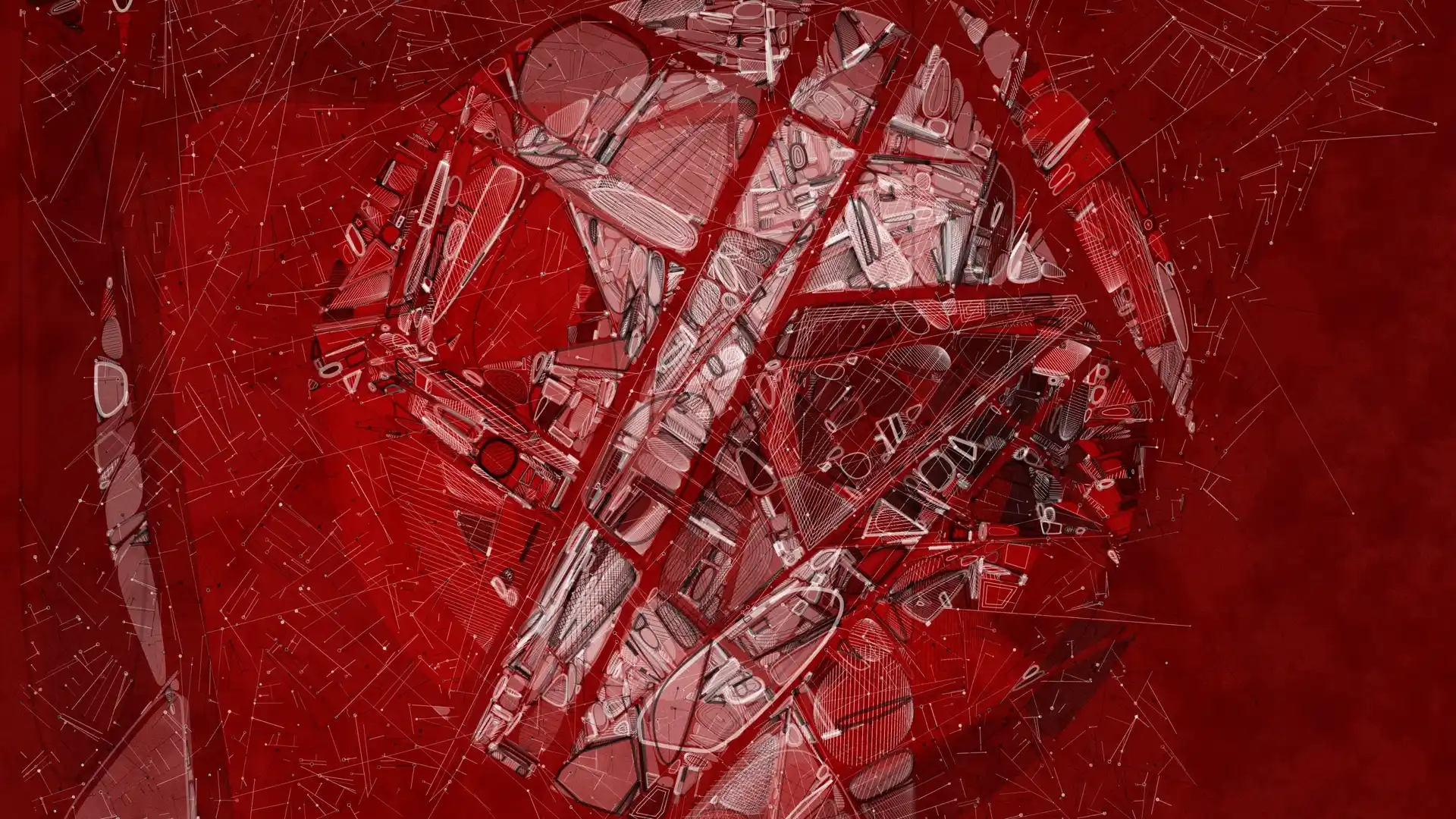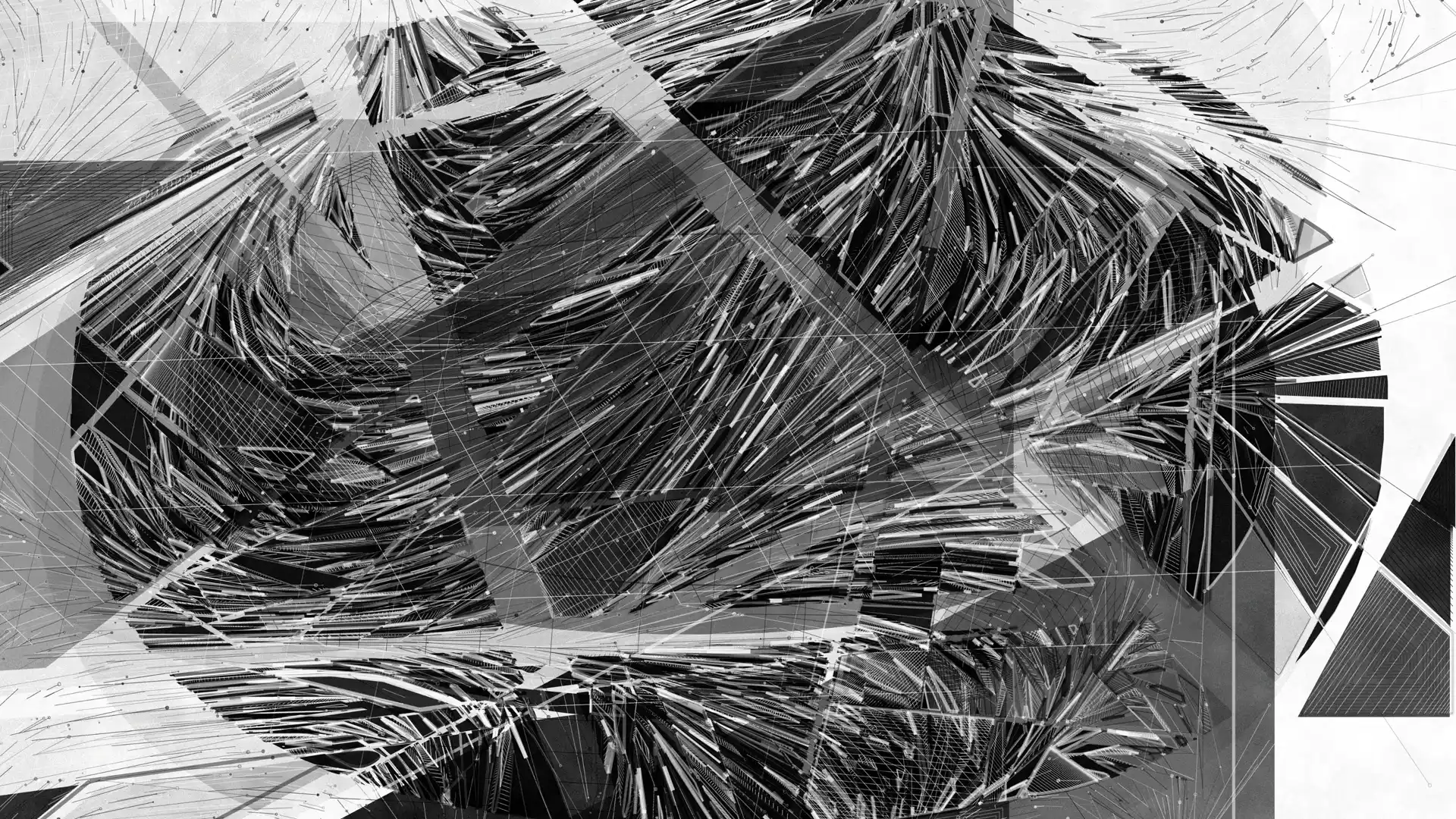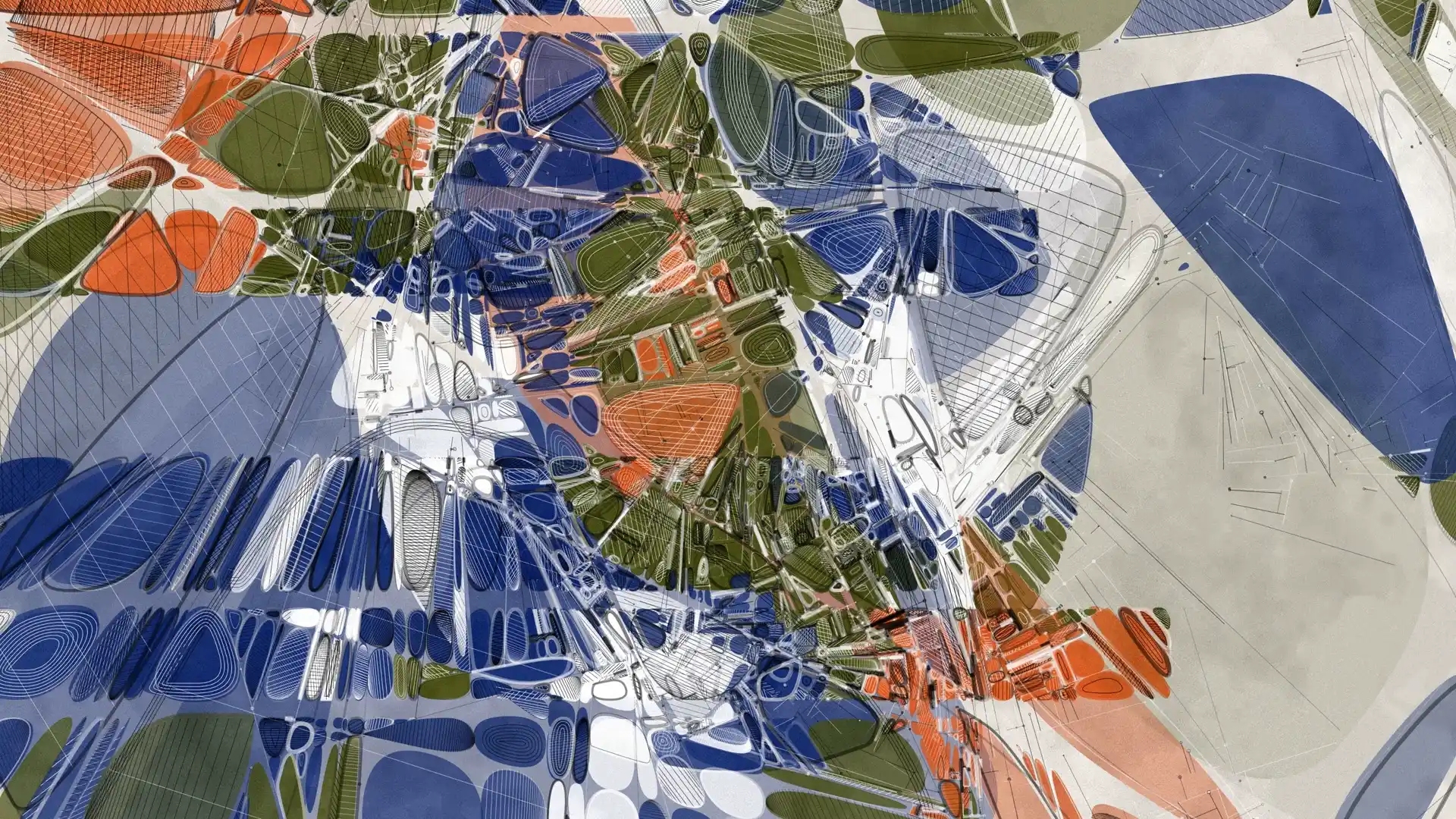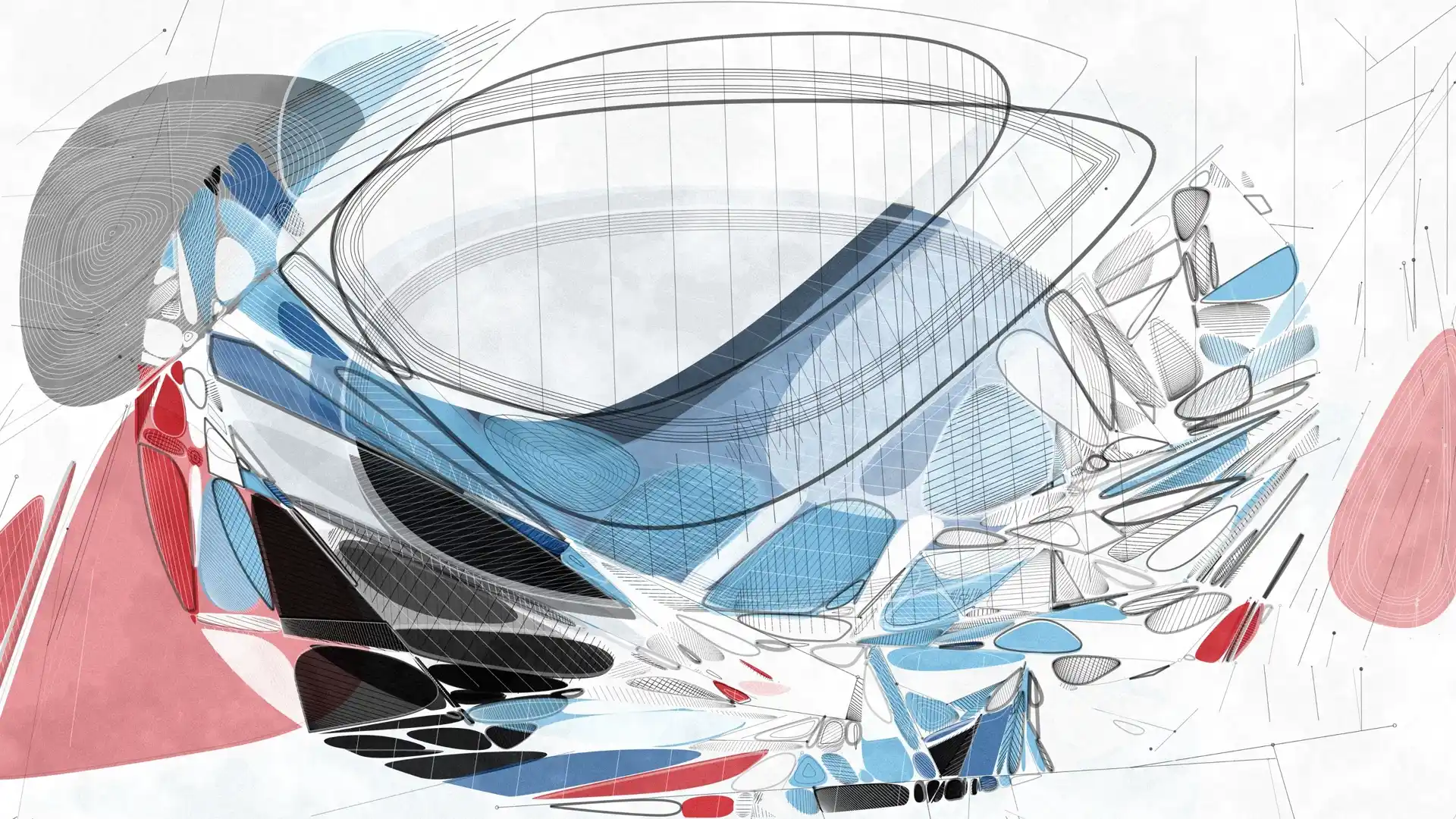THE INTERSECTION OF ART AND SCIENCE
Mitosis by Moodsoup
Mitosis is not only the subject. It is the method. The series uses code to model duplication, division, and specialisation, then renders the results with techniques borrowed from architectural drawing. The aim is technical precision that reads as a living system. The result is a magnificent artwork you can read two ways at once: as tissue in growth and as a plan that could stand.


“Which laws and conventions, or deviations, shape our world? How does complexity emerge from a basic set of rules? And how can these laws, whether hidden or apparent, be represented visually? Through generative art, these inquiries take shape as innovative concepts, ideas, shapes, colours, patterns and a new aesthetic”
Moodsoup
AN ARCHITECTURAL APPROACH TO BIOLOGY
DICHOTOMY OF SCALE
The artwork captures a dichotomy of scale, offering a dual lens through which the minuscule intricacies and vast expanse of our world can be equally appreciated. Surprisingly, biology and architecture can display striking parallels and even share a similar visual language. Close in, you see membranes and organelles. Step back, you trace routes and loads.

BIOLOGY PROCESS
The artwork mirrors the Mitosis process, where a cell copies its genetic material, divides, and helps form functional tissue. A seed shape duplicates, separates, and is subdivided until distinct roles emerge in the image. Local “densities” are managed so some regions thicken like tissue while others open like channels.

ARCHITECTURAL PRECISION
To achieve this complex and detailed visual result, Moodsoup wrote algorithms to create custom textures, rounding shapes, hatching patterns and inset shapes. Every mark has a job, and the drawing holds when you zoom.
COLOUR AS LIVING STRUCTURE
Twenty-five unique palettes reference processes like Photosynthesis, Bioluminescence, or Redox, each carrying its own chemical charge. Think of them as building materials: one dominant hue that sets tone, three to five companions that act as accents, joints, or apertures.
Shapes born from subdivision are filled with translucent layers that blend like washes in an underpainting. Position and Perlin noise guide assignment, so colour is not scattered but placed with intent, clustering into zones that behave like tissue regions or city districts.
Each work holds the calm of a main hue and the surprise of an outlier, the way both biology and architecture balance order with disruption.

More about the artist
Moodsoup
Stefan Reyniers, known as Moodsoup, merges art and science, exploring the world's complexities through generative art. With a background in graphic design and web development, he has evolved from using Flash to Processing, and now JavaScript and p5.js.
Discover

